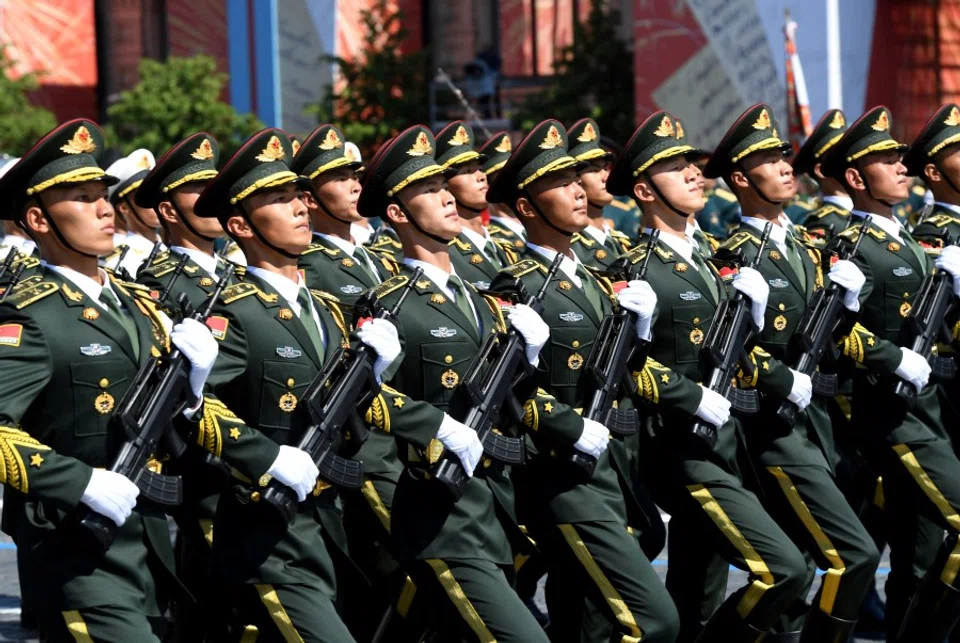Japanese academic: Can the PLA succeed in its smart warfare transformation?
Japanese academic Masaaki Yatsuzuka examines the PLA's latest efforts to move towards smart technology and smart warfare, and what this might mean for China and other countries.

The Xi Jinping administration is currently engaged in army building with the militarist mindset of making the People's Liberation Army (PLA) a "world-class force" by the mid-21st century. It is easy to read "world-class force" to imply China becoming a military power on par with the US, but it is not entirely clear how they intend to achieve this. Put differently, what will be the PLA's policy for army building from here on? The key to answering this question is what the PLA perceives to be the future form of warfare, namely "smart warfare".
According to the National Defence White Paper (NDWP 2019) entitled China's National Defence in the New Era announced in July 2019, the PLA indicated their view that a new form of warfare has appeared, saying: "War is evolving in form towards information-based warfare, and intelligent warfare is on the horizon." According to the definition of researchers at the PLA's National Defence University, smart war is "integrated warfare based on IoT (Internet of Things) systems that use intelligent weaponry and their corresponding strategy on land, sea, air, and space, and in electromagnetic, cyber and intellectual domains." They argue that the background for this appearance of smart warfare is that the application of cutting-edge technologies such as artificial intelligence (AI), quantum information, big data, cloud computing and the IoT is gathering pace in the military field.
The PLA recognised that the actions of the US were about to cause a military revolution centering on smart technology. Since then, the PLA has been engaged in theoretical research on military smart technology.

The PLA has responded to this view on warfare by engaging in army building in accordance with the "military strategic guideline for a new era", which it launched in 2019. The PLA appears to be transforming its force structure, weaponry and equipment systems, along with its personnel training systems. This direction will likely also be reflected in the ongoing military reforms.
This was triggered by the way the US identified the uses of AI and other state-of-the-art technologies as the core of the Defence Innovation Initiative (DII) in the "Third US Offset Strategy" in late 2014. The PLA recognised that the actions of the US were about to cause a military revolution centering on smart technology. Since then, the PLA has been engaged in theoretical research on military smart technology.
The PLA's movement towards smart technology is in line with the stance of the Xi Jinping administration. Since the administration's formation, President Xi Jinping has called for a strengthening of national power through the development of smart science and technology to drive the fourth industrial revolution. Since the use of state-of-the-art technologies will become a key determinant of future conflicts as well, it might be that the PLA "can overtake the US forces at the bend" by making use of this valuable chance and take the initiative in this new military revolution as US-China rivalry intensifies. This is the logic behind the Xi administration's support of military smart technology by the PLA.
Adapting to smart warfare means the PLA will have to lead the new military transformation when it has conventionally strengthened its military capacity by catching up to militarily developed countries.

The appearance of smart warfare will likely greatly transform warfare as we know it. By using equipment with sophisticated computing skills, such as AI and machine learning, to decide on command and strategic approaches, commanders will have more accurate analysis and better discernment about the other side's intentions. This will further accelerate the speed of operations, and the relative superiority of smart technology will come to determine the outcomes of all wars.
Moreover, the introduction of general-purpose AI will likely contribute to the spread of "autonomous" weaponry and equipment, which in turn further automates the battlefield. Responding to this changing face of warfare, the PLA has started to view emerging technologies and cognition as a new strategic high ground, referring to those fields with the words "intelligence dominance" and "mental dominance".
Meanwhile, the PLA must also be facing a variety of challenges as it prepares for smart warfare. Adapting to smart warfare means the PLA will have to lead the new military transformation when it has conventionally strengthened its military capacity by catching up to militarily developed countries. It is commonly said that military transformation is driven by actual combat, so in the absence of significant combat experience for some decades, will the PLA be able to lead the military transformation? Moreover, the discussions as to what extent to task AI with operational command and strategic decisions touch on the extremely sensitive issue of the CCP's political and ideological control over the PLA. Additionally, as demand for specialist human resources knowledgeable about AI is increasing in the private sector, it will become more difficult for the military to secure such human resources considering the emphasis on political education in the military. We will have to pay attention to how the PLA responds to these challenges as it prepares for smart warfare.



![[Photos] Fact versus fiction: The portrayal of WWII anti-Japanese martyrs in Taiwan](https://cassette.sphdigital.com.sg/image/thinkchina/3494f8bd481870f7c65b881fd21a3fd733f573f23232376e39c532a2c7593cbc)

